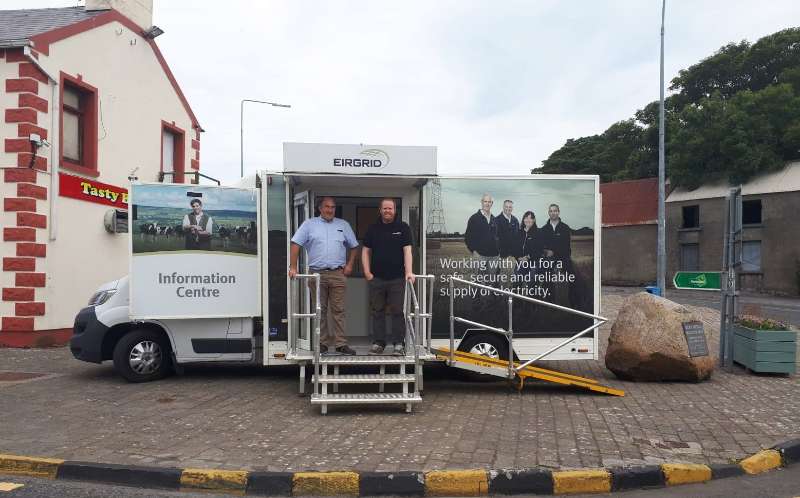Boyle woman speaks out on pylons
According to a report in this morning’s Irish Times, campaigners have reacted with guarded optimism to the news that EirGrid is considering an underground option for the high-voltage line from Roscommon to north Mayo. They have also called for transparency on how the decision is ultimately arrived at, and how the options are costed.
Martina Roddy, from Grange, Boyle, Co Roscommon, who campaigned for 12 years against the 56km Flagford (Co Roscommon) to Srananagh” (Co Sligo) line, said yesterday’s development was a step in the right direction.
“I hope they are genuinely considering the underground option,” she said, warning that people would not tolerate a decision to construct an overhead line. “They just bullied their way through here but people won’t accept that now both for health and devaluation reasons.”
The ESB got a High Court injunction against Martina and Michael Roddy in 2010 after they repeatedly refused access to their land. Their neighbour, Frank Mulligan, welcomed the fact that dialogue had “at last” started on the feasibility of undergrounding the line. “The devil will, of course, be in the detail.” A member of the lobby group AMP (Against More Pylons), he insisted that costs had come down so significantly that there was now very little difference between underground and overground.
“The time taken to lay a cable is also significantly shorter for underground. The visual intrusion disappears; potential health problems from EMF and corona ions is negated because of the structure of the cable and the fact that it is buried.”
The Roddys, who have two pylons on their farm, also reject the argument that the underground option would cost multiples of the overhead line. “The original figure for
our line was €36 million but it ended up costing almost €92 million,” said Ms Roddy.
She said the company figures never took the cost of devaluation of people’s farms and homes into consideration where overhead lines were constructed, “but it is inevitable that test cases will be taken in the High Court on this”.
The Irish Cattle and Sheep Farmers Association also welcomed the announcement. Its president, Patrick Kent, said the association had long campaigned for due consideration to be given to the undergrounding of such projects “due the negative effects on farming, landscape and tourism, and also because of public concerns regarding the possible health risks of overhead lines”.
AMP insisted that an underground line would significantly increase the security of supply, thus improving reliability. “Overhead lines are very vulnerable and we have only to think of recent storms and all the outages resulting in hardship, massive inconvenience and huge cost,” said Frank Mulligan.
Calling for a transparent decision-making process, he argued that power lines were being built not to ensure supply for the people of Ireland but to transmit power from wind farms to the UK and Europe. “It’s all for investors in these schemes and it should be up to them to pay for the infrastructure,” said Mr Mulligan. “Penalising the people of Ireland by increasing electricity costs in order to placate investors is totally inappropriate.”



